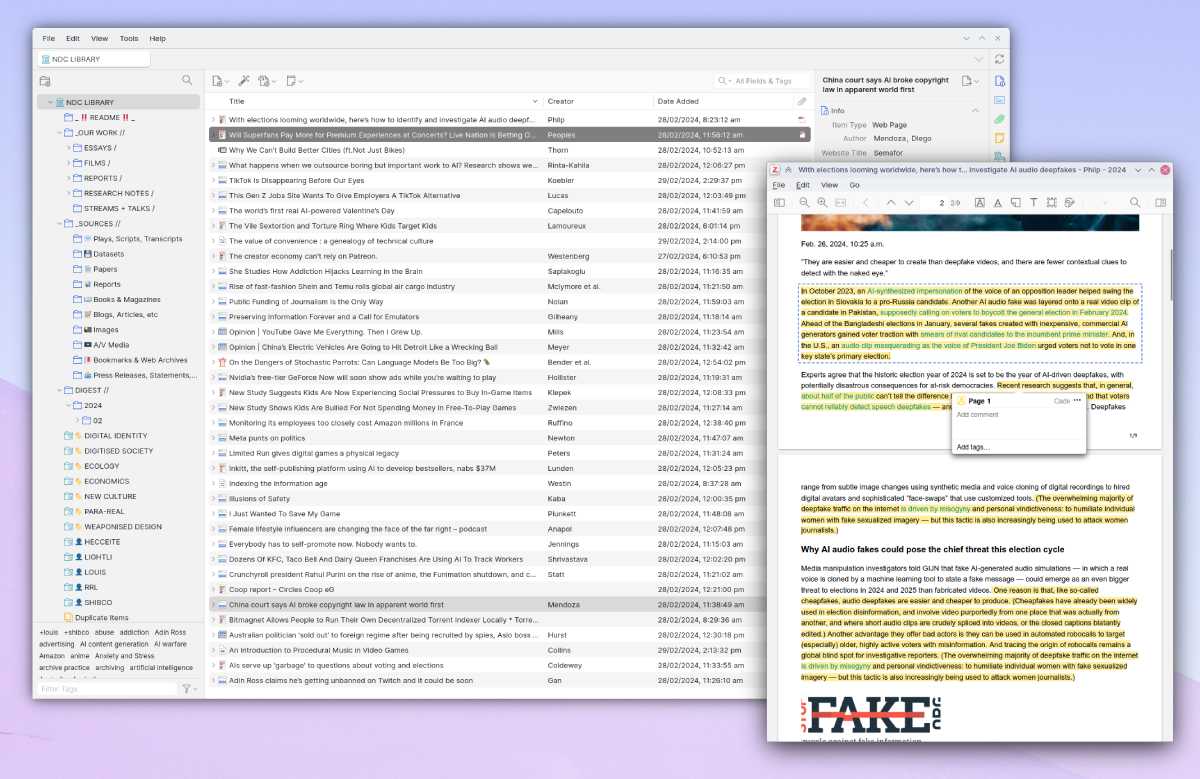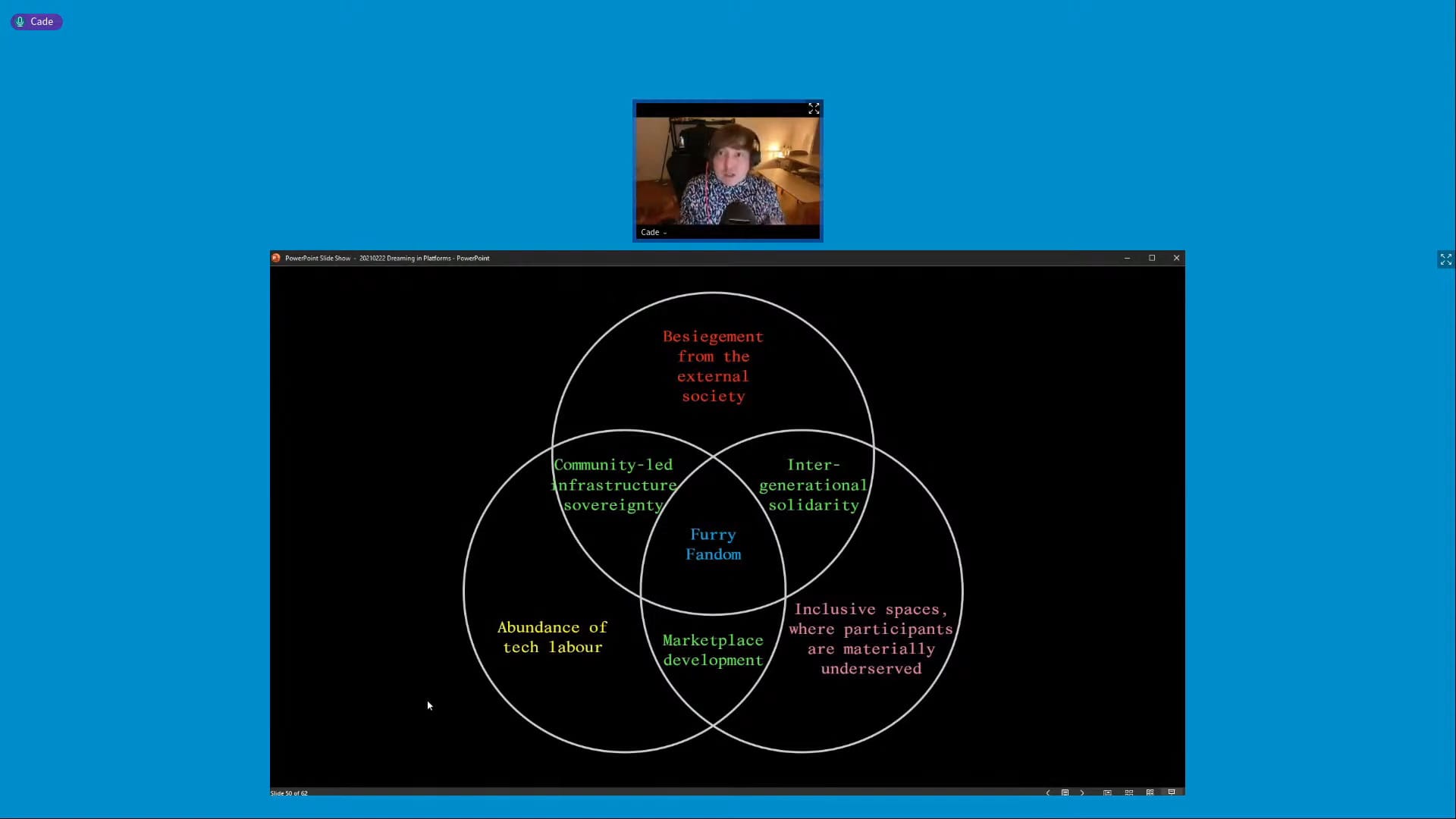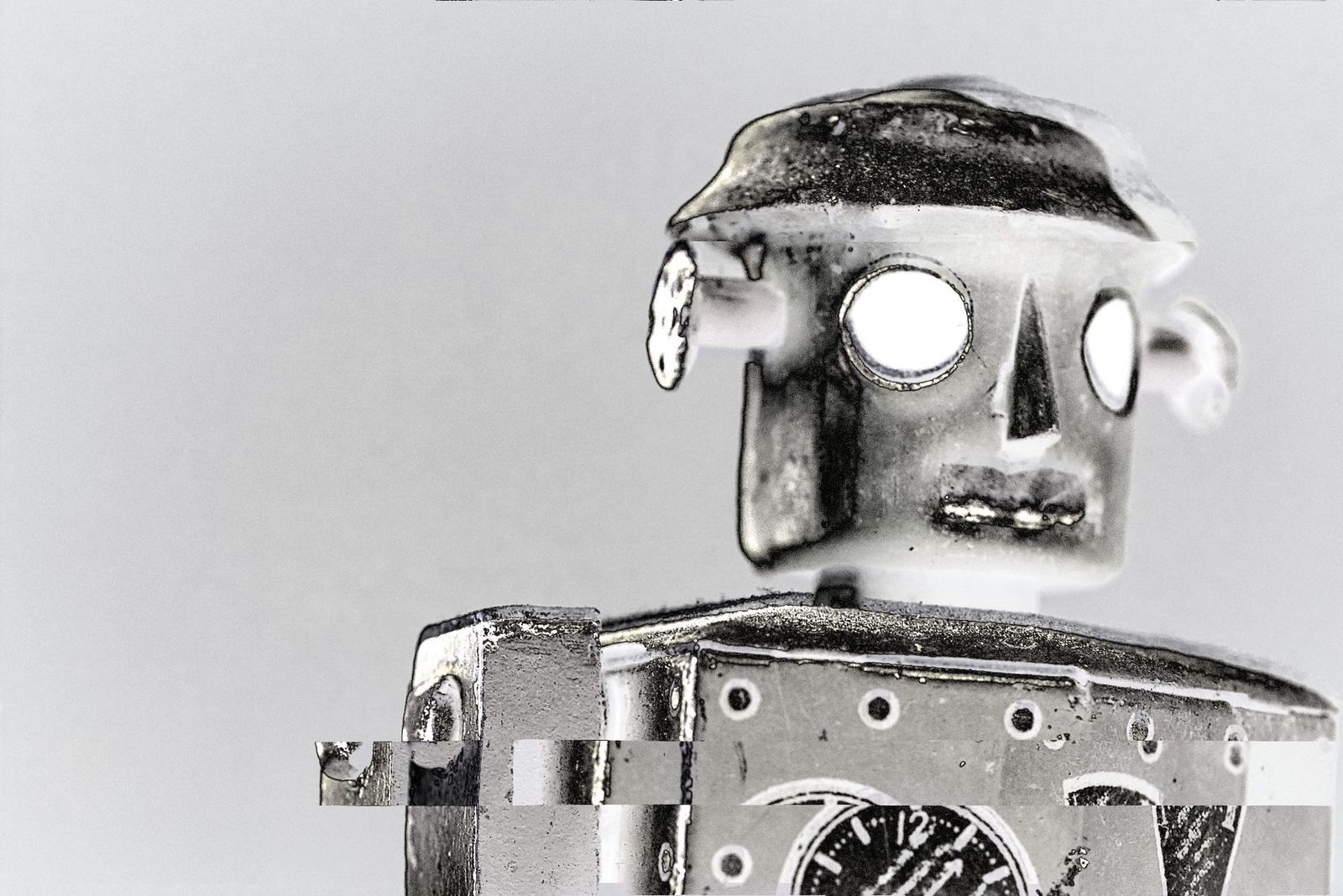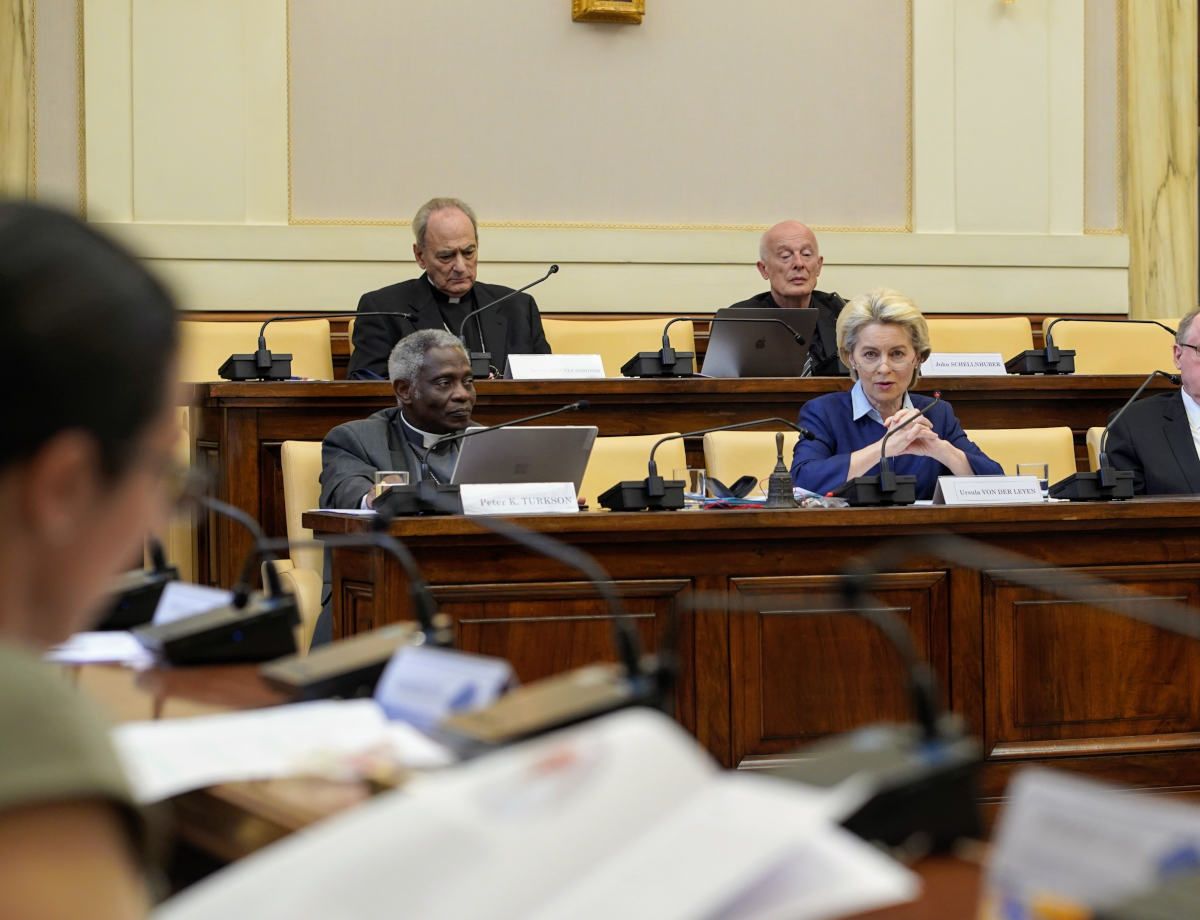
CABLE is a monthly digest and recap of New Design Congress' efforts to confront the gap between what is said to be happening, and what is actually happening in digitised societies.
CABLE 2024/02 is split into two parts. Part one covers announcements and updates about our work and its real world impacts. Part two is a digest of two short pieces from our research – the resurgence of 90s cyberpunk anime as an indicator of systemic anxiety, and our recent meeting with Furscience in Malmö – and a curated collection of articles from our reading list.
I. IMPACT + UPDATES
[RESEARCH NOTE]
SELF-(DE)TERMINATION: THE FATAL AMBIGUITY OF DIGITAL IDENTITY

In Hong-Kong, a finance worker joins a video call, one of the dozens he will attend in a single week. This is not a routine call however, the attendees are discussing a confidential transaction for a considerable sum of money. Familiar faces appear on screen, their voices fill his Bluetooth earbuds. Despite the sum, he is at ease. The other attendees on the call are authorised to approve this transaction. In the flattened reality of this digital interaction, reassured by the collegial decision, the worker agrees to transfer $200 million Hong Kong dollars to an overseas account.
Hours later the worker is informed he is an unwilling participant in a digital heist. None of those faces or their voices were real. The money is gone.
We have reached the digital identity event horizon, a fatal ambiguity borne from a failing and ubiquitous framework of Cartesian identity—‘I think therefore I am’. But how did we get to this point? And what can we do to fix it?
Following last month's Research Note on digital identity's flawed first principles, Benjamin Royer further defines the problem statement as we research better first principles for digital identity. This Research Note details how the incomplete reckoning of the electronic self leaves the digital identity discipline incapable of discerning its shortcomings, at great danger to individuals and societies alike.
[INVITE]
PARTICIPATE IN OUR DIGITAL IDENTITY RESEARCH
Over the next six weeks, we're conducting qualitative interviews with experts and users on the design, implementation and use of digital identity systems.
This is an open call for participation for security researchers, policy makers, activists, technologists, journalists, academics, artists, and other professionals whose work involves the design, development, deployment or assessment of digital identity systems.
We are also interested in speaking with individuals for whom a digital identity system has significantly impacted their lives.
Participants will be given a stipend for their time. Interviews are approximately 1 hour and 15 minutes in length, and are completely anonymised. Participants can withdraw their consent and exit this research at any time, right up to the date of publication of our findings.
[POLICY]
NDC JOINS THE DIGITAL CREDENTIALS FOR EUROPE OBSERVER BOARD
This week, the European Union Parliament unfortunately passed the EU Digital Identity Regulation (eDIAS). The legislation has weathered significant criticism around privacy and sovereignty and much of it remains unaddressed. To quote the Pirate Party's Patrick Breyer in a press release published yesterday:
“This regulation is a blank cheque for surveillance of citizens online, endangering our privacy and security online. [...] Entrusting our digital lives to the government instead of Facebook and Google is jumping out of the frying pan and into the fire. This deal sacrifices essential requirements the European Parliament had put forward to make the eID app privacy-friendly and secure. The EU misses the opportunity to establish a trustworthy framework for modernization and digitization. We will watch the implementation very closely.”
We agree with Patrick's assessment, but we also believe that all current implementations of digital identity are fundamentally flawed. At Next Generation Internet 2023 in Brussels, we posed the question of the vulnerabilities and had a fairly unsatisfactory response from the forum:

To be fair, the panelists' answer wasn't great because there are very few fixes for the problems introduced by current incarnations of digital identity. As Benjamin Royer writes in our just-released Research Note (see above), the inability to reckon with digital identity's shortcomings is likely a systemic issue.
With that in mind, we can now share our recent appointment to the observer board for the Digital Credentials for Europe (DC4EU) project. The DC4EU, in its own words, will "test interoperability and scalability" of EU member state digital identity pilots. This is our first appointment to such a body as a socio-technical red-team, a conceptual antagonism that will interrogates the first principles of the EU's digital identity strategy. We'll keep you updated.
[COMMUNITY]
TRIALING THE NDC ZOTERO GROUP

We continue to explore new ways to share our work with the NDC Community. In March, we will trial a shared Zotero+Discord group for ongoing collaborative research. Along with archived copies of all of our work, this group will contain all of the sources of our published work along with regularly curated digests, in-progress readings, and notes or annotations from the NDC team.
This trial will be available to Supporting NDC Members only. If you're already a supporter, you'll receive an email when the trial kicks off. If you'd like to join, please get in touch or become a Supporting Member.
II. DIGEST
YOU BEST START BELIEVING IN 90S CYBERPUNK DYSTOPIAS
YOU'RE LIVING IN ONE
In a pivotal scene in the final act of Ghost in the Shell (1995), an advanced and violent sentient artificial intelligence named The Puppet Master confronts protagonist Major Motoko Kusanagi, a cyborg tasked with tracking it down. As the two characters lie side by side in the ruins of a museum, the Puppet Master justifies its violence as a form of resistance and a self-preservation strategy before demanding political asylum...

Continue Reading this Research Note...
A FURRY THEORY OF ECONOMIC SOLIDARITY
Last week, over 3,000 Furries convened in Malmö for NordicFuzzCon, one of dozens of events held by the community every year. Furry conventions are independent, self-organised multi-day events of dance parties, film screenings, concerts, skillshares, networking and art markets. This year saw the participation of Furscience, a working group of postdoc researchers who study all aspects of the Furry community and other online subcultures and fandoms.
We were thrilled to be able to attend both of Furscience's presentations. In Furry Fandom Identity Resolution Model, Dr. Sharon Roberts proposed a social theory for developing an individuals' core sense of self in contemporary, modern societies through performative identity, furry capital and intrasonas.
Dr. Courtney "Nuka" Plante's Furry Psychology was a 2 hour recap of 11 years of study on the sociology and economic statuses of generations of the Furry community, covering everything from socio-economic status and spending habits, to political expression, to sexual identity and justice. Both talks were unmissable.
Why do entire creator classes experience severe economic stress, while others with comparable skills remain stable or unaffected? In developing the Para-Real, we've spent hundreds of hours in digital spaces, working with dozens of communities to try to answer this question. We believe that the Furry community – a multi-disciplinary and highly skilled population – uses queer inter-generational solidarity, performative identity and entrepreneurship to build embedded and resilient economies that transcend geographic or cultural borders.
We owe a great deal to projects like Furscience, whose work continues to back our belief that another world is possible. For some – like the 3,000 in Malmö – that world is already here.

Furscience is an indispensable source for anyone looking to develop alternative economic models, solidarity movements, equitable platforms or other post-Neoliberal evidence-backed interventions. Their new book, Furscience: A Decade of Psychological Research on the Furry Fandom, is a comprehensive compilation of this work. It's available online for free and our notes and annotations on this publication will be available in our Zotero group.

OF INTEREST
Curated by Louis Center

THE CONVERSATION: So, you’ve been scammed by a deepfake. What can you do? – Top of the digest details the first order consequences of digital identity, as described by Benjamin's Research Note.
NIEMAN LAB: This nonprofit is using virtual reality to train Ukrainian journalists to cover the war safely – From the article: "While she says she felt safe during the sessions, the VR scenario in which participants were detained and interrogated by authorities at an airport was a valuable learning experience. Yakushko says she initially found it easy to answer the questions posed but later learnt that her answers were “not perfect” and that there were more secure and safe ways to handle this situation. “It’s good that I made these mistakes in VR life and not in real life,” she says."
ALSO NIEMAN LAB: With elections looming worldwide, here’s how to identify and investigate AI audio deepfakes – The amount of infrastructure required to respond to even the most crude audio deepfake is horrific. From the article: Experts agree that the historic election year of 2024 is set to be the year of AI-driven deepfakes, with potentially disastrous consequences for at-risk democracies. Recent research suggests that, in general, about half of the public can’t tell the difference between real and AI-generated imagery, and that voters cannot reliably detect speech deepfakes — and technology has only improved since then.
WIRED: How the Pentagon Learned to Use Targeted Ads to Find Its Targets—and Vladimir Putin – The weaponised design of online advertising networks. From the article: If the device spent most workdays at the Pentagon, the FBI headquarters, or the National Geospatial-Intelligence Agency building at Fort Belvoir, for example, there was a good chance its owner worked for one of those agencies. Then he started looking at the movement of those phones through the Grindr data. When they weren’t at their offices, where did they go? A small number of them had lingered at highway rest stops in the DC area at the same time and in proximity to other Grindr users—sometimes during the workday and sometimes while in transit between government facilities.
ARTNET: The World’s Most Popular Painter Sent His Followers After Me Because He Didn’t Like a Review of His Work. Here’s What I Learned – Parasocial aesthetics, doxxing, fandom, the risks of posting real-world critique with your real-world identity, and the friction between slow and natural popularity growth of the old guard, and the rapid, fast-paced, algorithm-driven popularity growth of the new guard. A fascinating read.
VOX: Everybody has to self-promote now. Nobody wants to. – From the article: “Neoliberalism has created so much precarity that the commodification of the self is now seen as the only route to any kind of economic security. Plus social media has given us the tools to market ourselves nonstop.”
THE CONVERSATION: What happens when we outsource boring but important work to AI? Research shows we forget how to do it ourselves – As we rely further on AI, our ability to remember how to do certain things weakens. I believe that – despite claims to the contrary by certain AI-embracing musicians and artists – this also applies to creativity.
CROSSPLAY: New Study Suggests Kids Are Now Experiencing Social Pressures to Buy In-Game Items – Kids are now feeling the social pressure to spend money on free-to-play games. Sometimes that leads to real world bullying. From the article: “The researchers explain that the gaming market integrates with everything else children do in life. “There's no sharp distinction between their online and offline world. These are just different parts of the social world they navigate, and appearance, or skins, are important identity markers,” Steinnes says. As Frank (13 years old) puts it: “If you don't play with anyone, you kind of have nothing to talk about at school.” (See also this Kotaku coverage)
DISCOURSE BLOG: Public Funding of Journalism Is the Only Way – Suggestion that the only way forward for online journalism is public funding. All other funding models have proven unsustainable. (See also, MATT PEARCE: Meditations in a journalistic emergency)
NYT OPINION: China’s Electric Vehicles Are Going to Hit Detroit Like a Wrecking Ball – Maybe also related to the recent news that Apple is stopping development of their EV. It's seemingly possible that China will take over this whole market.







